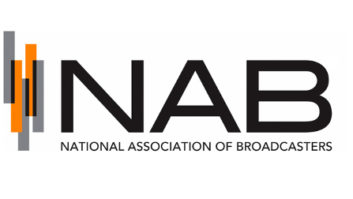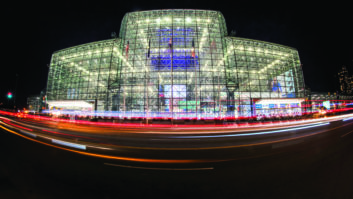
While it remains to be seen exactly how FM radio stations will be affected by the upcoming repack of television stations due to the TV spectrum auction, the National Association of Broadcasters is aware of one thing: the repacking of several hundred or more television stations to new channels will bring “unprecedented logistical and operational challenges for the commission and the broadcast industry,” the association wrote in a petition for reconsideration this month.
It’s becoming clear that the process will have implications for non-repacked broadcasters that operate on or near towers that serve repacked stations, the NAB said, calling on the FCC to reorganize its repack plans.
The NAB asked the commission to review targeted aspects of its plan, including modifying the scheduling plan, granting reasonable requests for deadline extensions and attempting to mitigate disruptions to FM stations and other broadcasters during the repack.
In its filing, the NAB stressed that there may be “unacceptable effects” from the repack on bystander television and FM stations that are not repacked.
“These non-repacked broadcasters will include television stations that are not repacked as well as FM radio stations, which have literally nothing to do with the auction,” the NAB said in its filing. “Any repacking plan that does not take these stations into account risks significant disruption and loss of service.”
The association said that the repack plan does not take into account the two main issues that will affect FM broadcasters: first, that a collocated FM station may lose its home on a tower if a repacked TV station has to move or add a heavier antenna; and two, FM stations collocated or on towers adjacent to repacked television stations may be asked to reduce power levels during the repack process as workers perform safety work.
“The FCC’s transition schedule does not appear to take these issues into account at all,” the NAB wrote.
It pressed the commission to rationalize its transition plan to minimize service disruptions.
Consider, as an example, an FM station with primary and auxiliary facilities located on separate towers, the NAB said. “If the FCC’s transition schedule has repacked television stations on both of those towers moving during the same transition phase, and if work is not carefully coordinated, the FCC may have crippled the ability of the FM station to stay on the air using its auxiliary facility.”
The NAB went on to ask if the FCC has considered the impact on asking FM stations to curtail service during peak hours while repacking work is performed.
“That approach would risk severe economic harm to FM stations that have nothing whatsoever to do with the incentive auction while also depriving listeners of service they enjoy today,” the NAB wrote
Also at issue: support for broadcasters during the repack process.
The NAB complained about the simple “reporting form” that the Media Bureau and Incentive Auction Task Force plan to use when communicating with broadcasters during the repack process.
Instead, the commission should establish a series of repacking regions, assign a full-time FCC staffer to each region, and establish regular conference calls within each region to better monitor the repack progress.
“The commission still has an opportunity to take steps to develop and implement a transition plan that treats all stakeholders fairly and protects viewers and listeners from service disruptions,” the NAB argued.
“The commission’s overriding goal as it manages this process should be to protect viewers and listeners. In practice, this means not forcing broadcast stations to go off the air or reduce their service due to circumstances outside their control.”
This includes potentially depriving listeners of radio service “because the transition scheduling plan operates as if radio stations do not exist,” the NAB said.
Last month, Radio World reported on guidance being offered to public radio about the impact of the spectrum auction on tower sites and projects.












